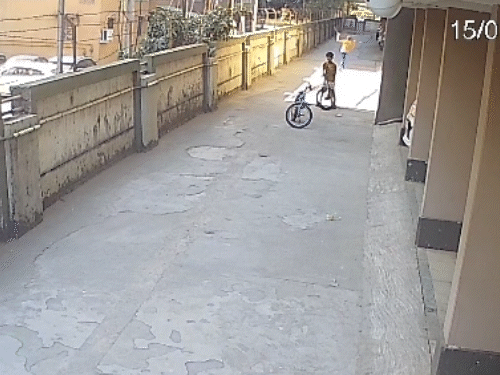Manipur’s Growing Crisis: A Call for Unity and Action Amid Rising Unrest
The northeastern state of Manipur, known for its unique cultural heritage and ethnic diversity, is currently facing a tense and volatile situation that has left both locals and observers worried about the future. Recently, the region has seen a surge in violence and lawlessness, affecting various communities and challenging the stability of the state. Amidst this rising turmoil, voices are emerging from within, calling for peace, unity, and accountability.
Local organizations, including the influential community group Taragi Cheisu, are urging for collective action, emphasizing the importance of working together to address the issues at hand rather than allowing further divisions. The group stresses that community cooperation and civil society engagement are essential to find peaceful solutions and ensure long-term stability. In this article, we’ll explore the background, recent incidents, and the importance of a unified approach in addressing the current crisis in Manipur.
Why is Manipur Facing Unrest?
Manipur, like many regions with diverse ethnic populations, has a long history of social, economic, and political challenges. However, recent events have pushed these tensions to the surface, creating a volatile environment where grievances are amplified, and social cohesion is tested. While the causes of the unrest are multifaceted, they often boil down to issues such as resource allocation, ethnic differences, and governance challenges.
In the last few months, Manipur has seen an alarming rise in violent incidents, including assaults, looting, and even clashes between community groups. This has sparked fear and anxiety among residents, who now worry about their safety and the future of their communities. The recent assault on members of the Poumai community is just one example that has intensified the call for immediate government action and stronger law enforcement.
Community Organizations and Their Role in Calming the Situation
In times of crisis, community organizations often play a critical role in promoting peace and unity. In Manipur, groups like Taragi Cheisu have taken it upon themselves to foster dialogue and cooperation among communities. Their efforts are focused on reminding people that, despite their differences, they share common values and goals. This message of solidarity is essential, especially in a climate where fear and suspicion could easily lead to further division.
For Taragi Cheisu, the message is clear: peace is achievable only if all communities work together. The group has called for civil society organizations to step in and help bridge divides, bringing people together through dialogue, empathy, and understanding. This approach is not only about addressing the immediate crisis but also about laying a foundation for long-term peace and stability.
The Government’s Response: Is It Enough?
While local organizations and civil society groups are doing their part, the role of the government is also critical in managing the situation. The people of Manipur have expressed frustration with what they perceive as a lack of decisive action from authorities. In many instances, residents feel that law enforcement has not been effective in preventing violence or ensuring the safety of vulnerable communities.
For many, the government’s response has been slow and inadequate, leaving citizens to fend for themselves. This sense of abandonment only adds fuel to the fire, as communities begin to lose trust in the authorities’ ability to protect them. It is clear that a stronger, more proactive approach is needed to restore order and reassure the people of Manipur that their government is committed to their safety.
Impact of the Crisis on Everyday Life in Manipur
The ongoing unrest is more than just a political issue; it affects the everyday lives of ordinary people. For residents of Manipur, the current crisis means living in fear, facing disruptions in daily activities, and feeling uncertain about their future. Schools, businesses, and social gatherings have been impacted, with many people avoiding public spaces out of fear for their safety.
The economic impact is also significant. When a region is in turmoil, it becomes difficult to attract investment or create job opportunities, further aggravating existing poverty and unemployment issues. For Manipur, this means a slowdown in development and a cycle of hardship that could take years to overcome if not addressed promptly.
How Unity Can Pave the Way Forward
In a diverse state like Manipur, unity is not just a concept but a necessity. With various ethnic groups and communities sharing the same space, the only sustainable path forward is through cooperation and mutual respect. Local leaders and community organizations are calling for everyone to set aside differences and work together for the common good.
The call for unity is not merely a sentimental appeal; it’s a practical solution to the challenges that Manipur faces. Divisions only make the situation more complex, while unity allows communities to pool their resources, share their strengths, and find common ground. As Taragi Cheisu and other organizations continue their efforts, there is hope that Manipur’s communities will rise above their differences and work toward a peaceful future.
What Needs to Change?
While community efforts are invaluable, there are several areas where improvement is necessary to prevent further escalation of the crisis:
- Improved Law Enforcement: Strengthening law enforcement presence in sensitive areas can prevent violence and protect vulnerable communities. Police and other security forces need to be better trained and equipped to handle situations of civil unrest.
- Government Accountability and Transparency: One of the main grievances among residents is the perceived lack of accountability from the government. By maintaining transparency in decision-making and communicating clearly with the public, authorities can rebuild trust and demonstrate their commitment to the people.
- Fostering Community Dialogue: Encouraging open and honest communication between different community groups can help dispel misconceptions and reduce tension. Community leaders and local organizations can play a role in organizing forums or meetings where people can voice their concerns and seek understanding.
- Long-Term Investment in Infrastructure and Development: Addressing the underlying economic challenges in Manipur can create a more stable and prosperous environment, reducing the likelihood of future unrest. This includes investing in education, healthcare, and job creation initiatives.
Conclusion: A Time for Collective Responsibility
The crisis in Manipur is a reminder of the delicate balance that exists in diverse societies. The unrest highlights the importance of unity, the role of civil society, and the responsibility of the government to protect its citizens. While challenges remain, there is hope that with collective effort, Manipur’s communities can overcome this difficult time and move toward a more peaceful future.
As community organizations like Taragi Cheisu continue to advocate for peace and understanding, it is clear that the path forward will require both grassroots efforts and decisive government action. By working together and embracing a spirit of unity, the people of Manipur can build a resilient and harmonious society that celebrates its diversity rather than being divided by it.
FAQs
- What led to the current crisis in Manipur?
The crisis stems from a combination of ethnic tensions, governance issues, and recent violent incidents that have heightened fear and division among communities. - What role are community organizations playing in Manipur’s situation?
Organizations like Taragi Cheisu are promoting unity and cooperation, urging communities to work together and avoid generalizing blame. - What actions are local residents expecting from the government?
Residents expect stronger law enforcement, increased transparency, and immediate government intervention to restore peace and safety. - How is the unrest affecting daily life in Manipur?
The crisis has disrupted daily life, causing economic losses, fear, and limitations on social activities and public gatherings. - What are some possible long-term solutions for Manipur’s stability?
Improved law enforcement, fostering community dialogue, and investment in economic and social infrastructure can promote long-term stability.



